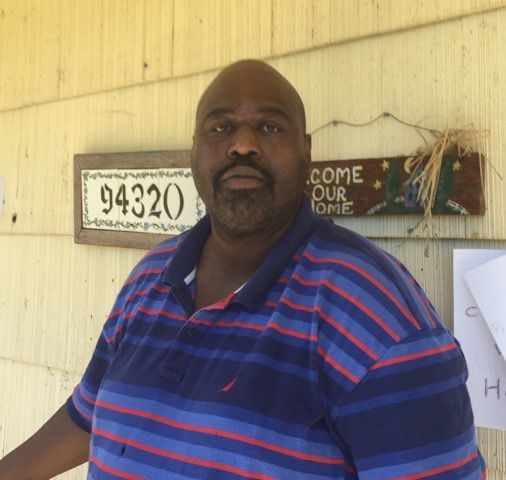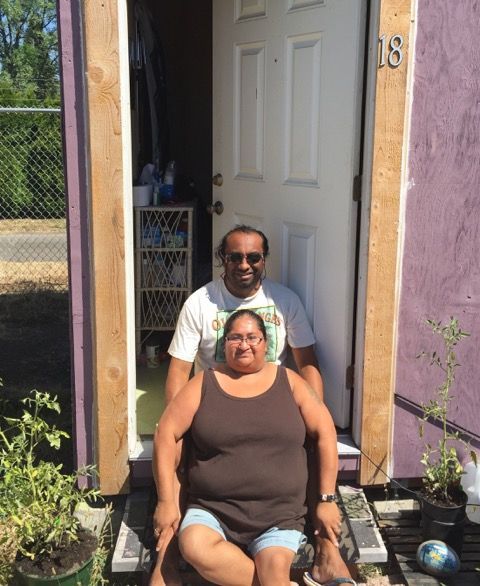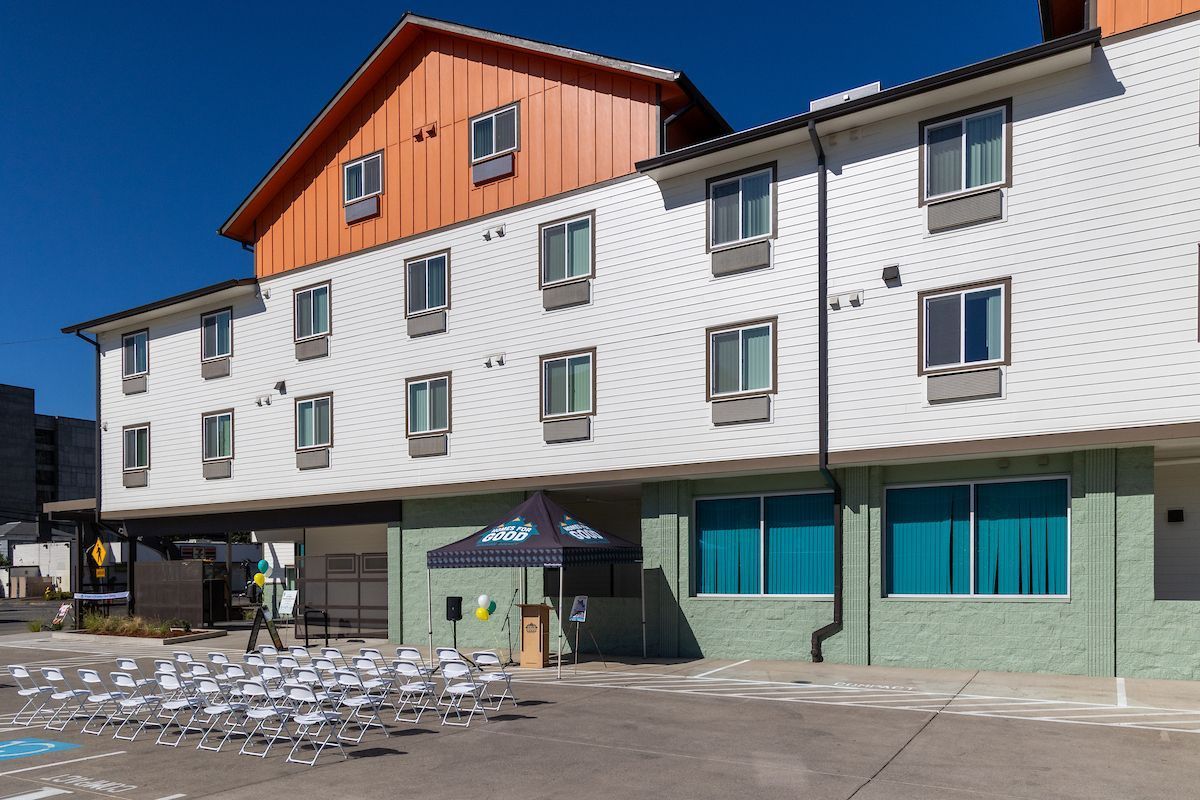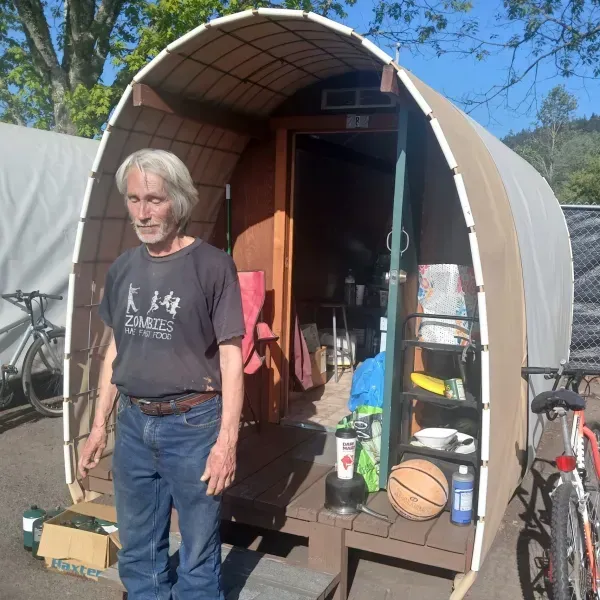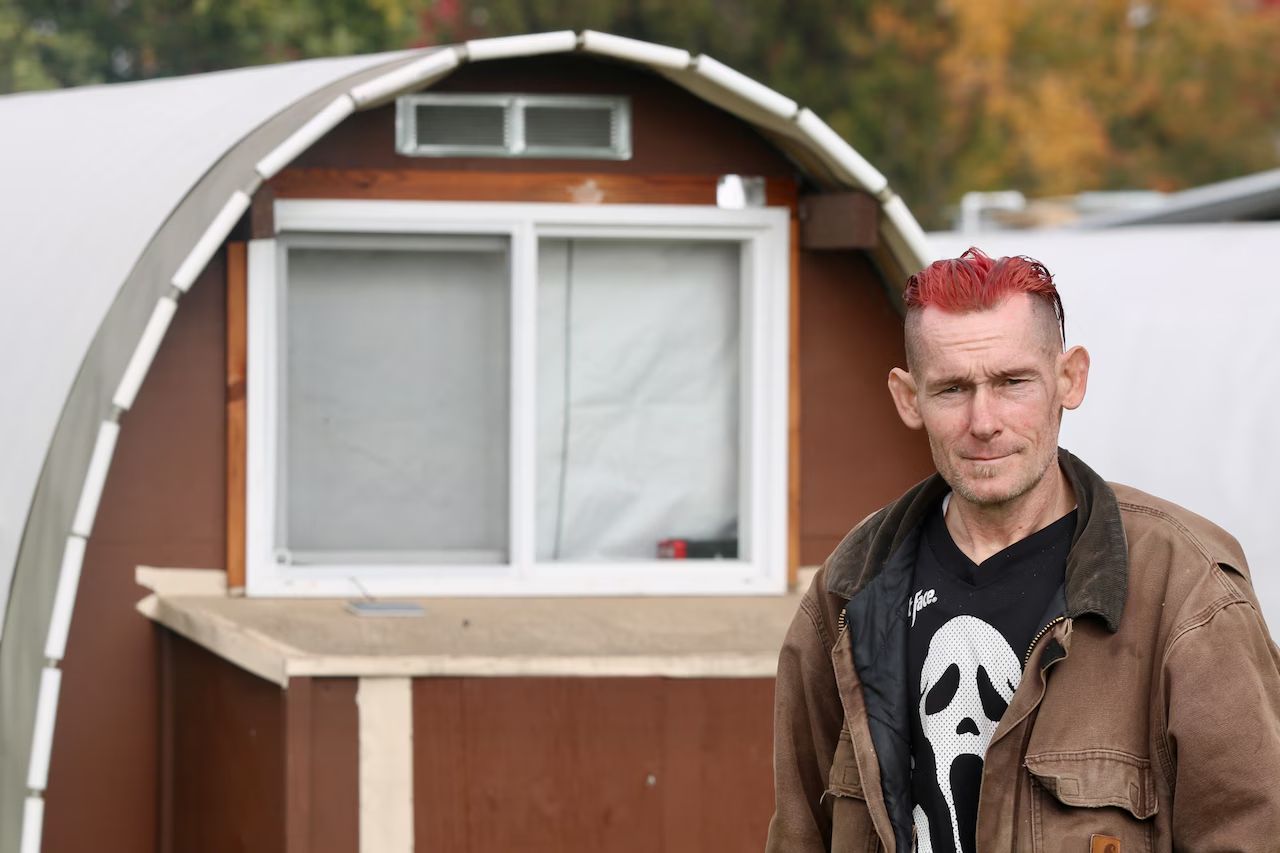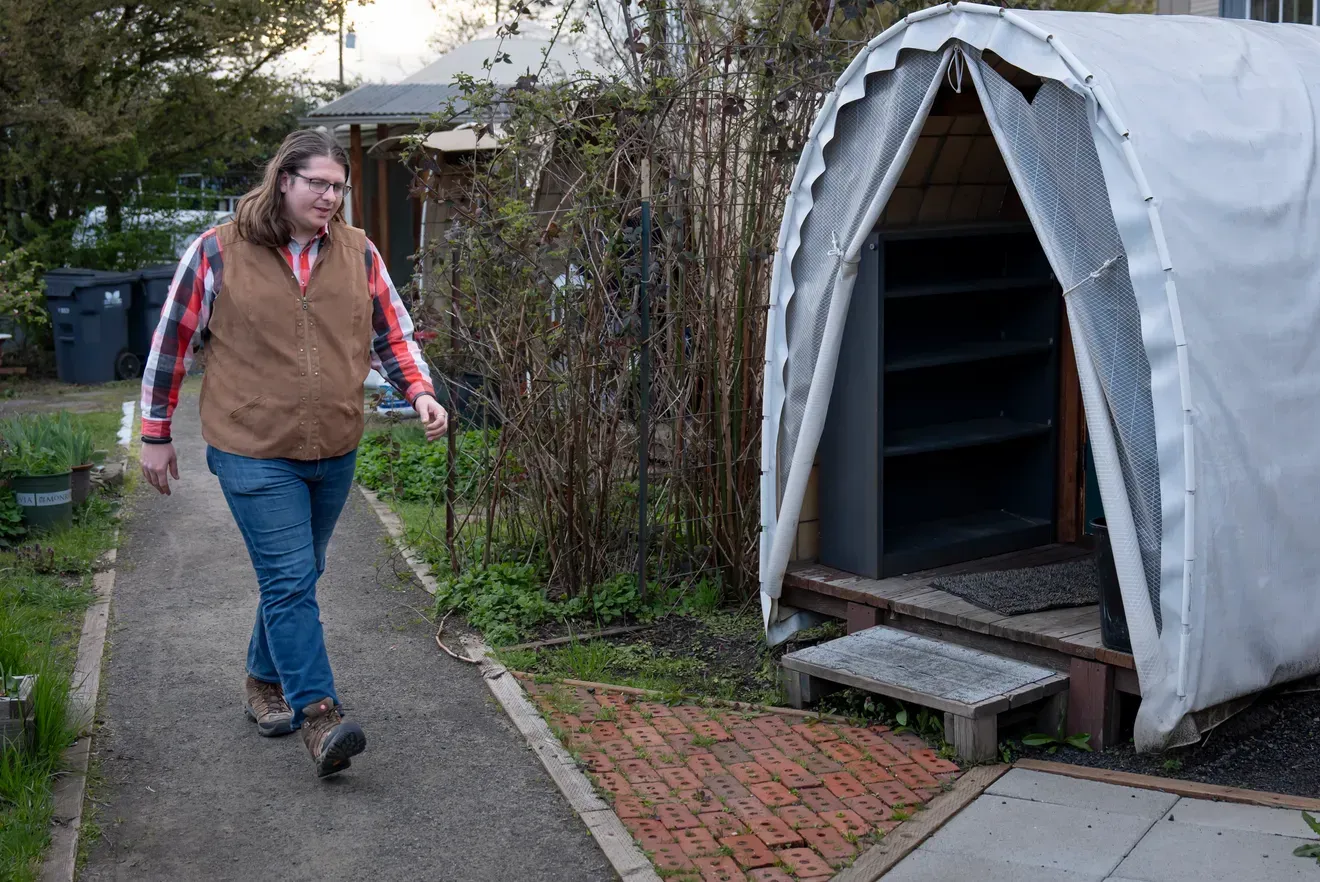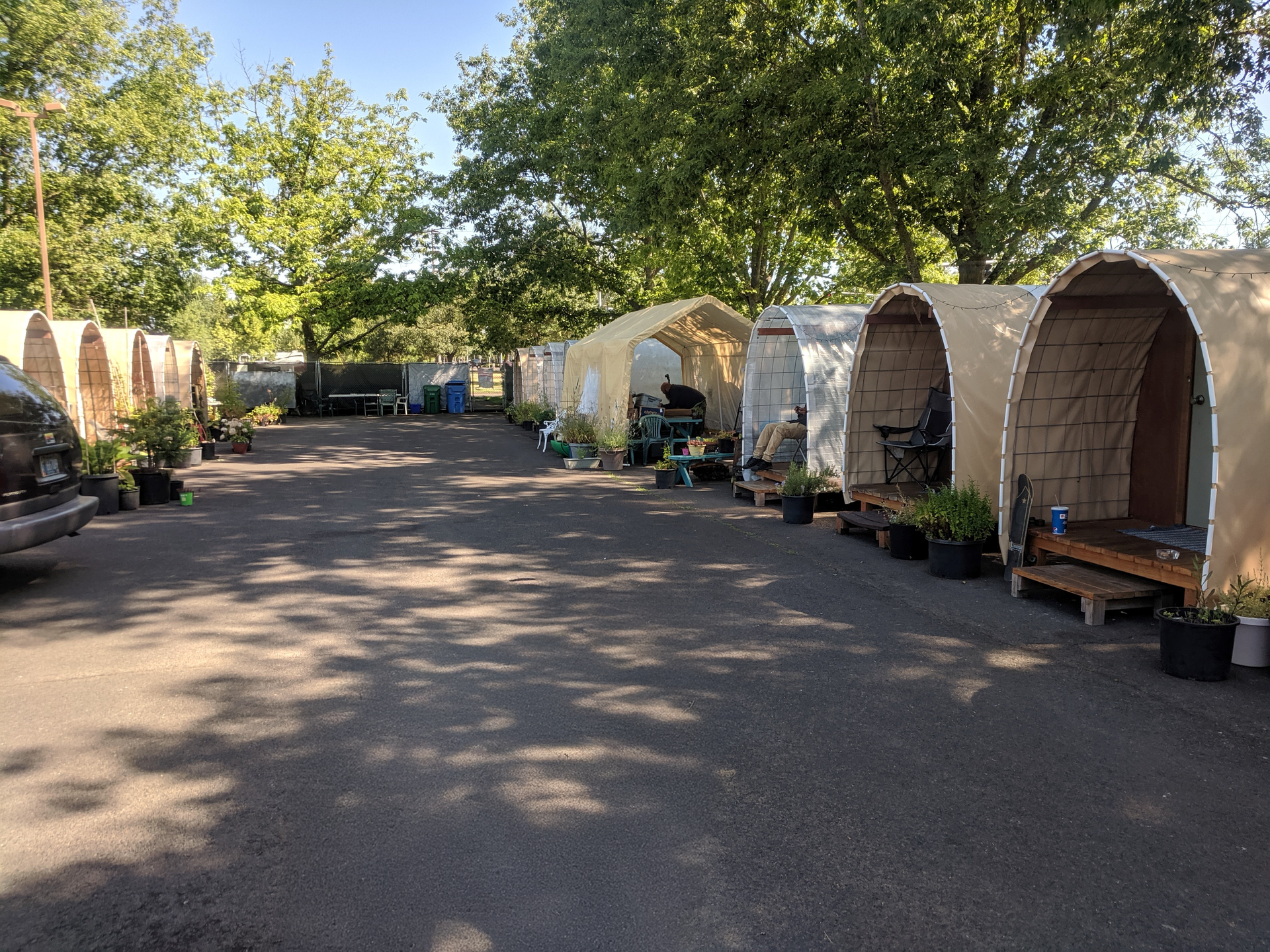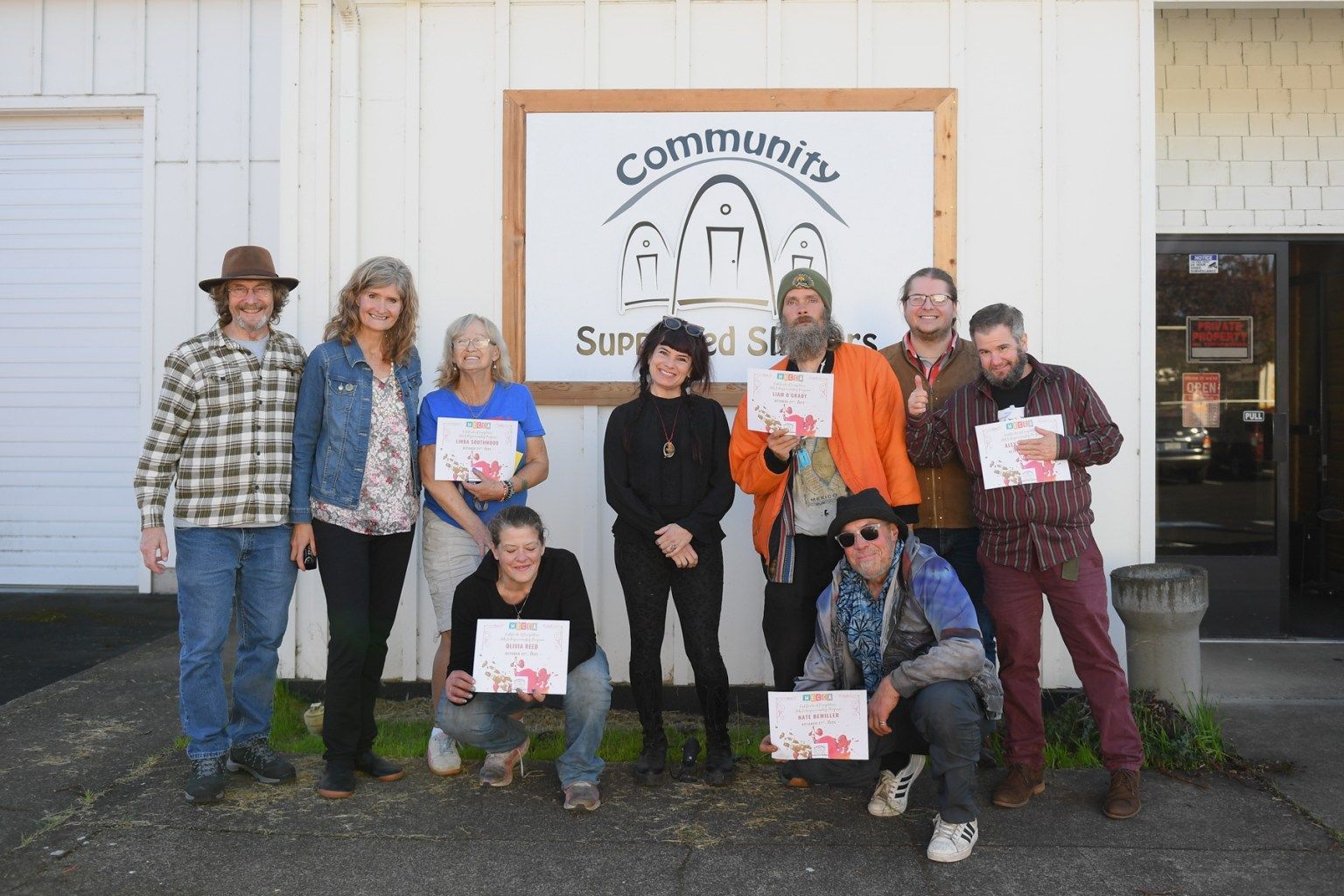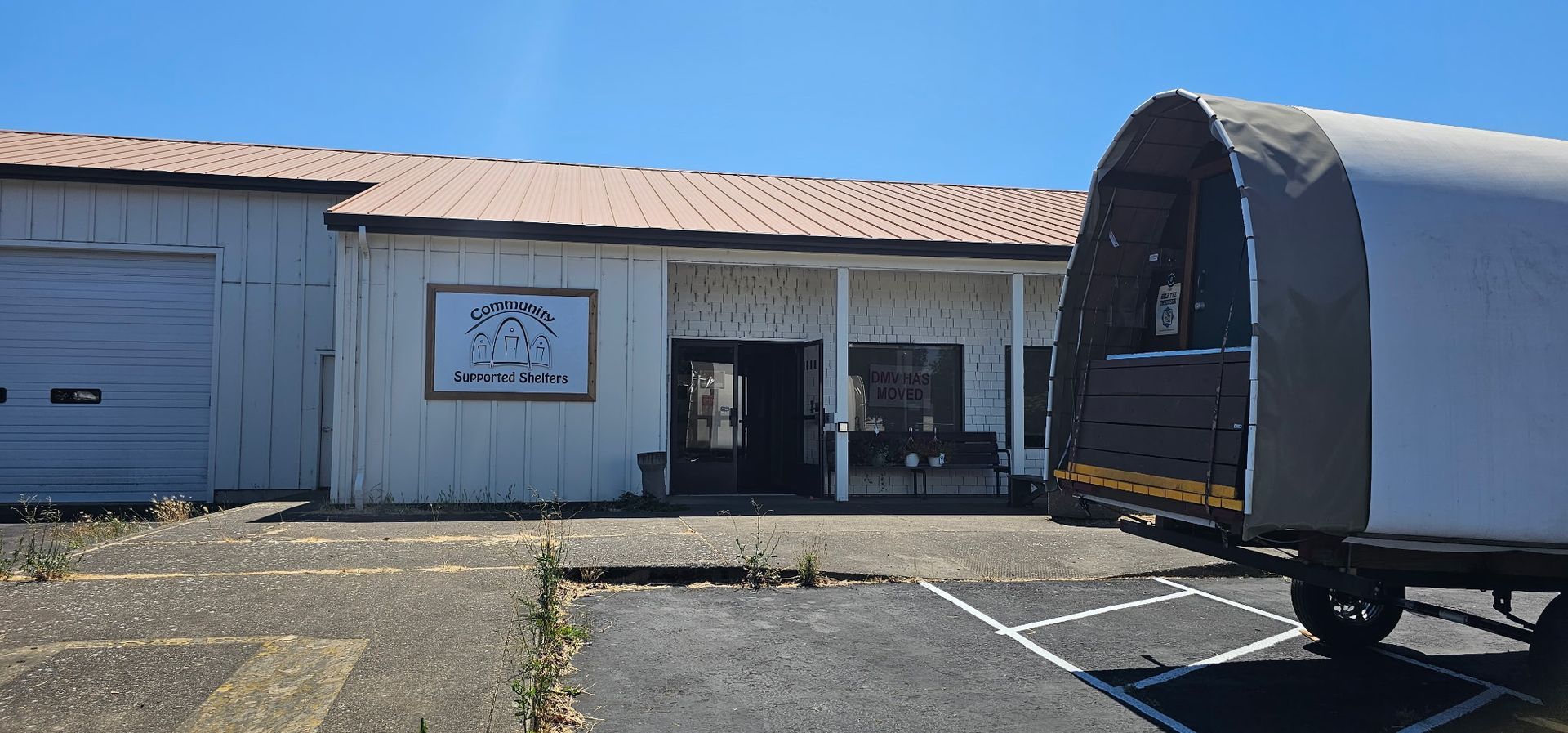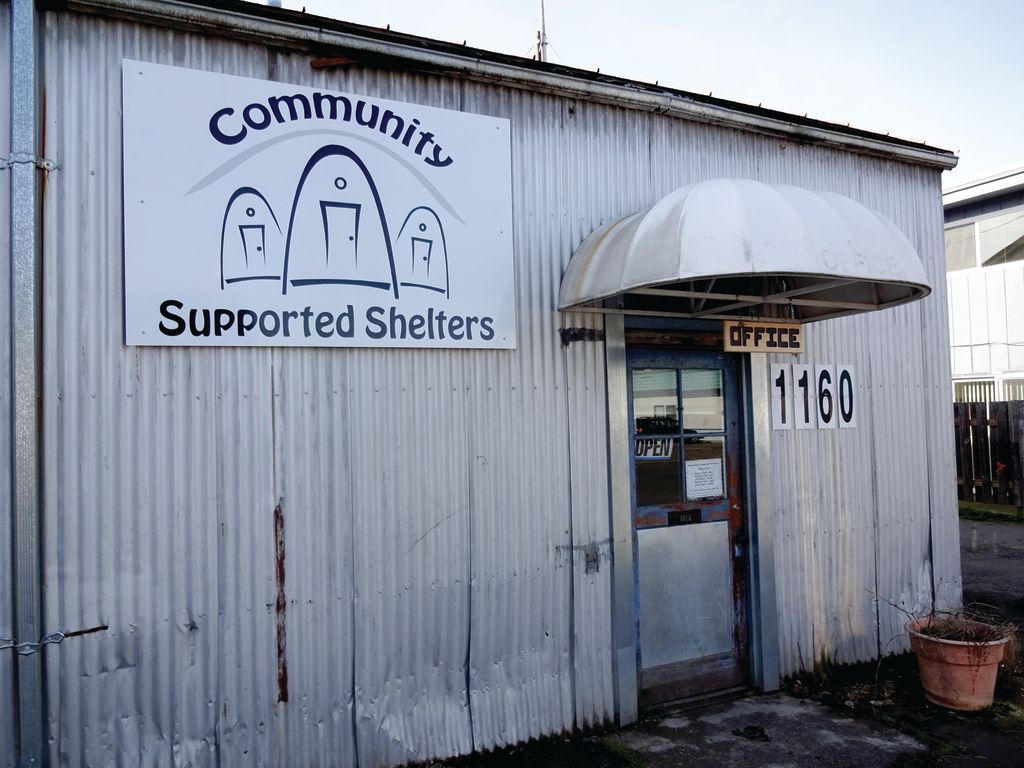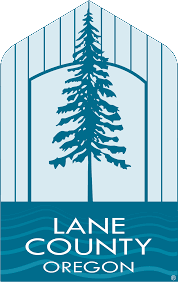When he moved into the Vets Camp, Owens, 44, who has osteoarthritis in his hip, was trying to get Social Security Disability Insurance but was stymied by the bureaucracy. He had been kicked out of the Eugene Mission for testing positive for marijuana use, which he says he was taking to alleviate his hip pain. Though smoking marijuana was not allowed in the Vets Camp, he could smoke away from the camp. And the camp gave him a stable and safe place to be while he worked his way through the bureaucratic maze of Social Security—and something more: other people with whom to have normal conversations.
“It gets lonely out there,” he says. “There’s a lot of solitude in being homeless. ’Normal’ people don’t want to talk to you. People will kind of act like you’re not there. It was valuable just having someone to talk to. We had a camp full of vets and we’ve all got something in common.”
When his disability payments finally came through, he stayed with his brother for a while before moving into his current place in February. He has an upstairs room with a window air conditioner. ”This is perfect,” he says. “It’s quiet, on the edge of town, there’s not a lot of traffic going by. There’s no drama here.“ He’s trying to lose weight and arrange to have bariatric surgery so he can get his hip fixed, and he is pursuing a passion for photography.
“It’s pretty empowering having my own place. I’ve come a long way from sleeping under the bridge. Every time I drive past that bridge I look at it and it makes me appreciate the things that I have.”
Nonnie, 40, started working at the Salvation Army—a ten-minute walk from the Roosevelt camp and OVE—at the same time they moved into the Safe Spot. She is now a supervisor there and does “pretty much everything,” working as many as 25 hours a week, even though she’s only scheduled for 18—she goes in early and stays late to get as many hours as she can. Carlos, 45, has been working on getting disability insurance payments since they were in Portland, well over a year ago, but has faced many of the same bureaucratic obstacles as Owens did. He’s now hoping to get help with the paperwork—which he struggles with—from a Eugene attorney who offers assistance with social security problems at no charge.
Opportunity Village has 30 dwellings—including nine Conestoga Huts—accommodating close to 40 people. In the Vasquez’s 8-by-10 small home, living conditions are a step up from their situation in a tent at the Safe Spot. “It’s nice to be able to stand up,” Carlos says.
OVE has a kitchen facility with two refrigerators, laundry facilities, a common area in a yurt with computers and Wi-Fi, and a bathroom area with showers. Some residents have their own gardens with flourishing tomatoes and zucchini. Nonnie and Carlos have solar panels, which they first started using at the Safe Spot, to charge their cell phones and run a portable DVD player. And they’ve found a supportive community similar to what they experienced at the Safe Spot.
Like Owens, Carlos and Nonnie point to the camaraderie at the Safe Spot as a key element in their transition from homeless to small home residents. “That’s really hard to find these days in the homeless situation because out there everybody’s in it for themselves,” Nonnie says. “But in the Safe Spot and at OVE, everybody works together.”
“We made good friends [at the Safe Spot] and that’s important to us,” Carlos says. “We’re kind of weird. We don’t have a lot of friends. We’re very picky about who our friends are and we found people who are very humble and genuine—just good people. That just improved the quality of that safety feeling. We still have relations with people there. ”
The couple says that the reputation that the Safe Spots and OVE have earned in the community has helped to open doors for them.
“When it comes to references, we have Erik [de Buhr, executive director of Community Supported Shelters] and the people we live with now,” Carlos says. “And everybody knows Praise [site manager at the Roosevelt camp]. “People will say, ‘oh, you live with Praise, you must be okay.’”
“We needed references to move in here,” Carlos says. “It always helps to have local references. In the future when it comes to being able to rent a unit that is super important to have.”
“Both of these places are well known and spoken of well,” Nonnie says. “If you live down by the river, people will give you this look, like ‘what kind of person are you?’ But if you’ve come from the Safe Spot or OVE, they know you’ve had to work with others and live in a community.”
Carlos and Nonnie are saving their money with the hope of moving to a place where they can stay long term and “have kind of a normal life.” They feel like they are in a much better position to do that than they were when they arrived in Eugene with everything they owned on their backs.
“We know there are going to be challenges that are going to get in the way,” Nonnie says. “But we have our faith never ending, and He’s blessed us with so many things already, like being here.”
“It’s wonderful here.”


